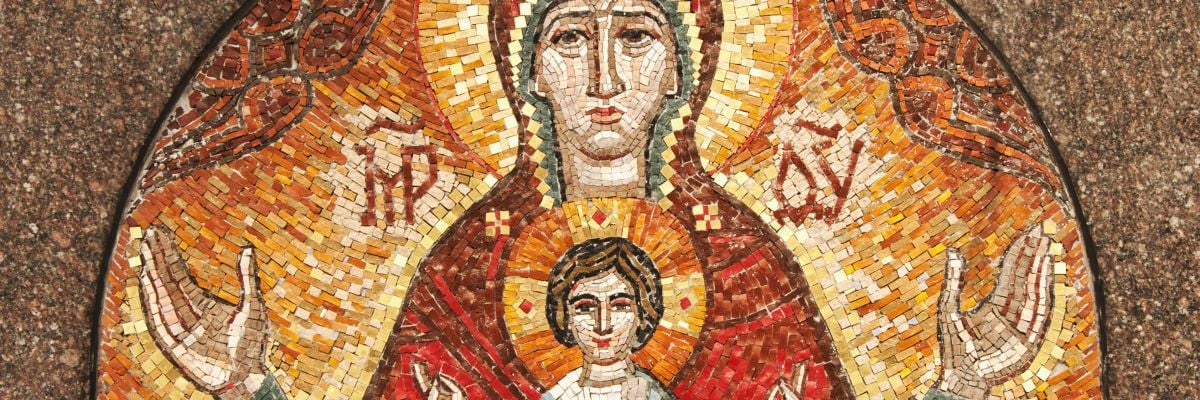
Question:
Answer:
Mary’s title of mediatrix arises from her cooperation in the Incarnation and in the Redemption of mankind. Through her “yes” (Lk 1:38), she became the Theotokos (God-bearer), and, as the “New Eve,” she is “the Mother of all living.”
Irenaeus (A.D. 120–200) wrote, “As by a virgin the human race had been bound to death, by a virgin it is saved, the balance being preserved, a virgin’s disobedience by a virgin’s obedience” (Against Heresies, 3, 22, 19). Eve made the Fall possible, but Adam effected it; Mary made our Redemption possible (by consenting to bring the Savior into the world), but Jesus effected it.
God permitted the Redemption of mankind to depend on the free-will decision of a human being. Whether or not we would have a mediator was dependent on Mary’s “yes.” Had there been no “yes” from Mary, there would have been no mediator. Thus the graces that come through Jesus may be said to come to us, in a secondary way, via Mary—not as the origin of the graces, but as a conduit. The Catholic Church always has taught that Jesus Christ alone redeemed mankind (neither Mary nor any other creature had the power to do so), and ultimately only through him are salvation and grace obtained.
Even we are mediators, in a lesser sense. The word mediator means someone who is a go-between. In 1 Timothy 2:5, which refers to Jesus as the “one mediator,” the Greek word for “one” is heis, which means “first” or “primary” and does not denote something exclusive. In fact, we are all mediators when we pray for one another. As members of the Mystical Body of Christ, we all share in Christ’s role as mediator, but our efforts at being go-betweens “work” only because of what he has done.
Our mediating in no way diminishes the role of Christ as mediator; in fact, it glorifies the Father, because it is through Jesus that we can approach with confidence the throne of grace (Heb 4:14-16). How much more does Jesus give his mother Mary the privilege to be a participant in the distribution of grace!


